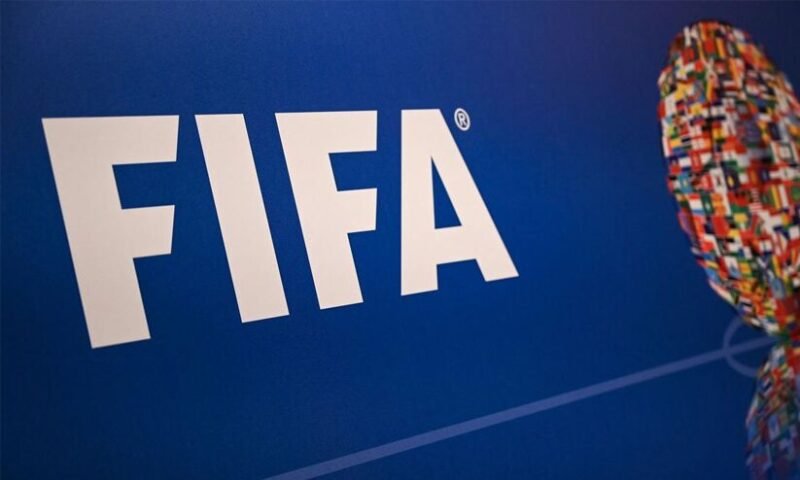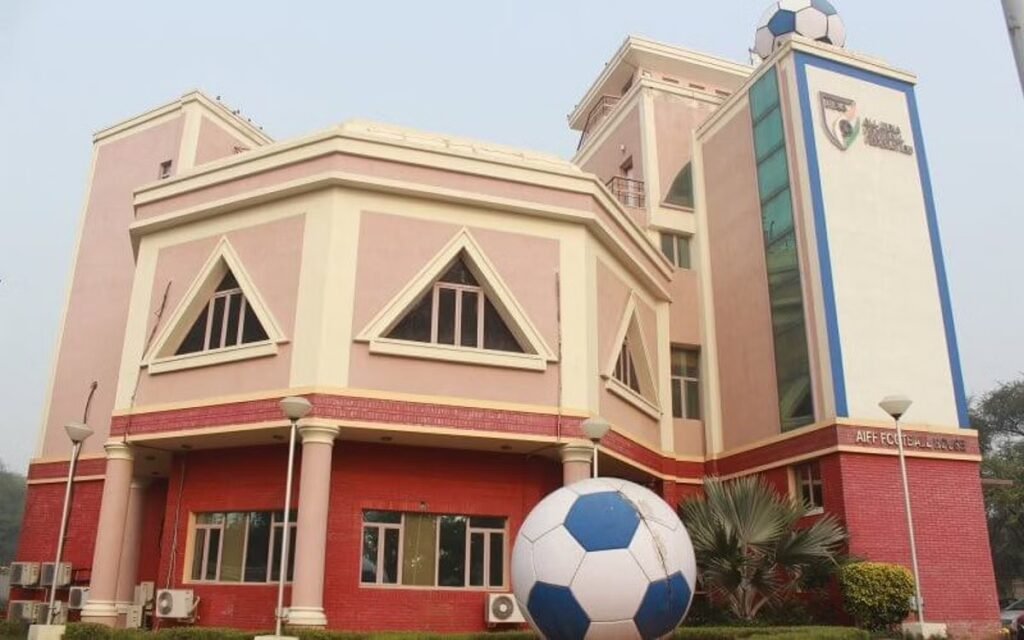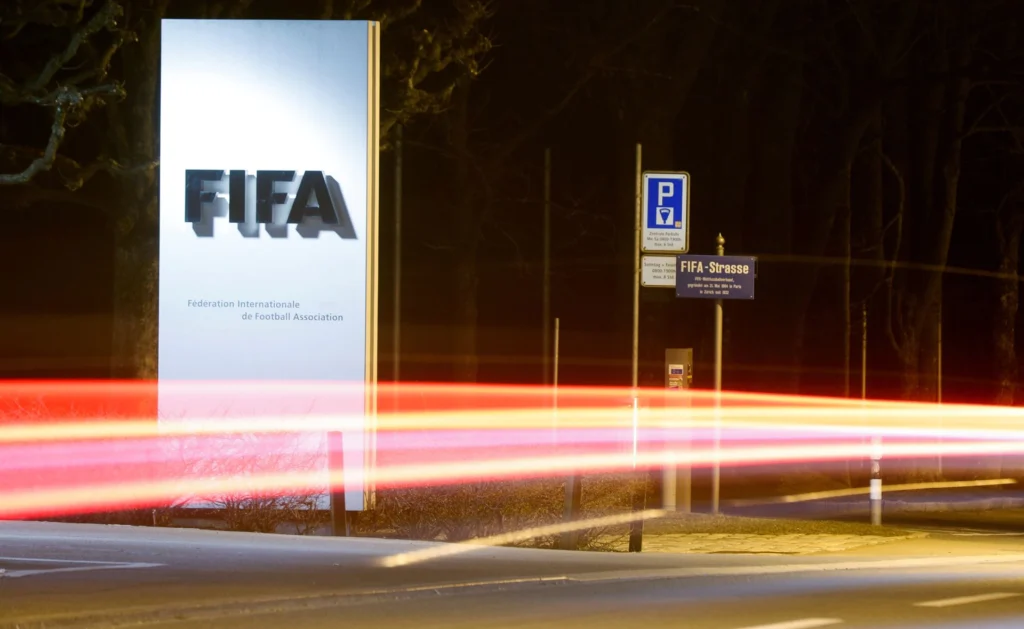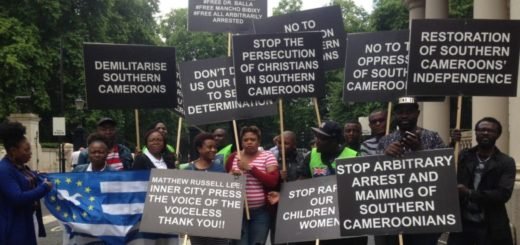FIFA, An Institution of Democracy?

A Dumbfound decision to suspend the All India Football Association (AIFF), as confirmed by Fédération Internationale de Football Association (FIFA) in a communique dated 16th August 2022, infuriates various sections in India associated with Football. In the said press release, FIFA reasoned third party involvement for the suspension of India and implicitly referred to the Indian Supreme Court’s setting up of the Committee of Administrators (CoA), which now jeopardizes the developments in Indian Football to conduct the Under-17 FIFA World Cup in India. At the crossroads of such development, India’s apex court revoked the constitution of CoA to soothe FIFA under the pretext of national interest, which propounds an inconspicuous question of how could FIFA direct an apex court of India to follow its dictate through these coercive tactics? In turn, would the National Federation representing a Sovereign State affiliating with FIFA enrich them beyond the covenants Rule of Law? Many legal practitioners fail to contest the said queries.
Meanwhile, The former skipper of Indian Football, Baichung Bhutia, termed such a decision to suspend AIFF “very harsh But the Solicitor General of India, Tushar Mehta, fails to voice against this FIFA’s coercive act, subverts the Supreme Court of India and undermines our sovereignty to cohere with the dictates of FIFA, which by nature is an association registered in Switzerland. Nonetheless, an essential point of inquiry is whether an association working transnationally like FIFA can tyrannize to name a Constitutional Body like the Supreme Court of India as a third party. When such acts by FIFA were not first of the kind, Nigeria in 2014, Guatemala in 2016, and Kuwait in 2018 were suspended on the accounts of their National Judiciary’s cognizance of anomalies with their respective National Federation. Such suspensions always come with a narrative representing Apex Court institutions as a “third party.” This continuing act by FIFA to represent the national judicial institutions of their affiliating federation as a “third party” put forward an argument whether FIFA is an institution of democracy or imperialism which entails an introspection, where an attempt trails below exposes the neo-capitalist agenda of FIFA, which needs a consequential course correction.

Who is FIFA?
By origin in 1904 with the congregation of seven national associations from the countries Belgium, Denmark, France, Netherlands, Spain, Sweden and Switzerland at Paris, then housed in Zürich as headquarters binding to the laws of Switzerland. In various instances, FIFA dictates to its affiliated clubs, associations, and confederation to adhere strictly to its statutes. FIFA’s statute identifies itself as an “association registered in the Commercial Register of the Canton of Zurich” where the business of such Commercial Registry of Zurich is to enrol commercial entities to guarantee “transparency and legal certainty in business transactions.” An unadorned answer is that FIFA is the “football’s international governing body” comprising many national federations attached to their regional confederation. Being an international governing body of Football registered with the Commercial Register of Zurich as an association, FIFA earns through television, sponsors, and marketing as estimate announced recently in the Annual Congress of FIFA by its President Gianni Infantino that a sum of USD 6.11 billion of its target income has been contracted by the end of 2021. Such a track record of revenue generation stands at a scale far higher than that of several African Economies. Standing successfully with higher margins of profits, FIFA as a governing body runs their entire chain of the most profitable Football game as a business through their regional confederation across the world from their home base in Switzerland, which makes FIFA to qualify as a Transnational Corporation. The conduct of their business with their member association through regional confederations and then with national federations constituting Transnational Relations which FIFA preserve through obligations mentioned in their Statute to shield their chains of contacts from any national Courts of Law except their appointed Judicial Bodies. Such judicial bodies do not represent the equal representation of States or affiliate with international courts like the International Court of Justice, which makes a solid argument for identifying FIFA as an institution not adhering to democracy where such appointments are opaque and follows an oligarchic mechanism further moots a question for whose agenda does FIFA favours?
FIFA, Neo-Colonial Institution?
Article 59 of FIFA’s Statute explicitly propounds that the “recourse to ordinary courts of law for all types of provisional measures is also prohibited”, which also directs its member association to include in their local statute that any individual cannot legally challenge their activities in ordinary courts of law. Having explained the transnational relations of FIFA through their regional confederation with statutory emphasis to de-hyphenate the national federation from the scrutiny of a court of law moots a rational criticism that FIFA flexes its statute to sabotage the sovereignty of a State through their member associated National Federation by undermining the sovereign institutions like the Courts of Law. FIFA gains benefits through nations which participate in football competitions. As such, participation aids FIFA in earning revenue exponentially through airing their game on television to every corner of the participating nations, which mastery to mobilize sponsors and advertisements with ease.
FIFA enjoys all such benefits due to the Nation-specific football team’s patronage. However, putting a bar on member associations in taking legal recourse from the national Courts of Law and stipulating to appear before their Courts of Sports or Arbitrations based in Switzerland indicates a dictate of the colonial era to take legal recourses only from the Capitals of master nations in Europe. FIFA’s Statute provides recourses to the national court of law, but only if any of their regulation paves the way for such a route with a condition for exclusive arbitration. Such norms reflect the colonial master’s attitude of FIFA not to recognize other justice delivery mechanisms available with national courts of their member associations.
In his book “Neo-Colonialism: The Last Stage of Capitalism”, Kwame Nkrumah mentions Invisible Government which influences newly independent countries, including business firms and seemingly private institutions that advance to infringe a Nation’s Sovereignty, seems to fit the act of FIFA as a neo-colonial institution which sabotages the rights of member association and further extends to identity Nation’s Constitutional Institution like Courts of member association as a third party.
A straightforward question ponders: does FIFA also recognize Switzerland’s Court of Law as a third party? As FIFA gains recognition through the Commercial Register of the Canton of Zurich, would the covenants of the Swiss court of law allow being treated as a third party and upheld mentions? Well, the retort to such context is that FIFA does not recognize the Swiss Judiciary as a third party because it is evident from the facts that any individual or entity shall sue FIFA only in Switzerland Courts. So does Switzerland Court cannot be barred from interfering in any issues. In case of the Swiss national federation being scrutinized by the Swiss Apex Court and then appoints an interim committee to run that national federation, would FIFA still attempts, in the same manner, to suspend the Swiss Team and refers to the Swiss Courts as Third Party? The answer is that FIFA cannot claim in that manner as they are bound to the Swiss Courts. When Swiss Courts are not barred from conducting an enquiry on FIFA’s anomalies, what is the rationality of FIFA to stop the National Courts of other countries from expediting course corrections on the anomalies existing in their respective national federation?



FIFA needs course corrections
Courts constitute a part of the State and are sovereign in their respective jurisdiction. FIFA’s Statute, drafted during the colonial era, does not recognize the Court of Law primarily because FIFA was once confined only to Europe and later extended to accommodate other continents in the game of Football. As FIFA made such accommodation, it did not revise its Statute and thus follows a practice till now to undermine the legitimacy of the National Judiciary in the countries of the member associations. Also, FIFA gains leverage by using the national team through member associations and with such patronages, FIFA makes profits in their revenue. While FIFA also claims to be politically neutral. But FIFA’s act to suspend Russia on account of their invasion of Ukraine in 2022, whereas FIFA stayed indifferent when the USA invaded Iraq in 2003. Being politically neutral connotes exhibiting such acts in all circumstances instead of selectively exhibiting neutrality on issues favouring the vested interest of Europe. So FIFA needs to act by its Statute first for being neutral rather than being a vehicle for neo-colonialism. Thus requires respecting the covenants of States from which the member association are affiliated with FIFA. To conclude, FIFA’s Statutes require certain amendments that recognize the sovereignty of States which are represented by the national federation, connotes to recognize the jurisdiction of Courts that exists to provide legal recourses for any anomalies with member associations and the national federation as such federation represents their respective States in Football games.



















